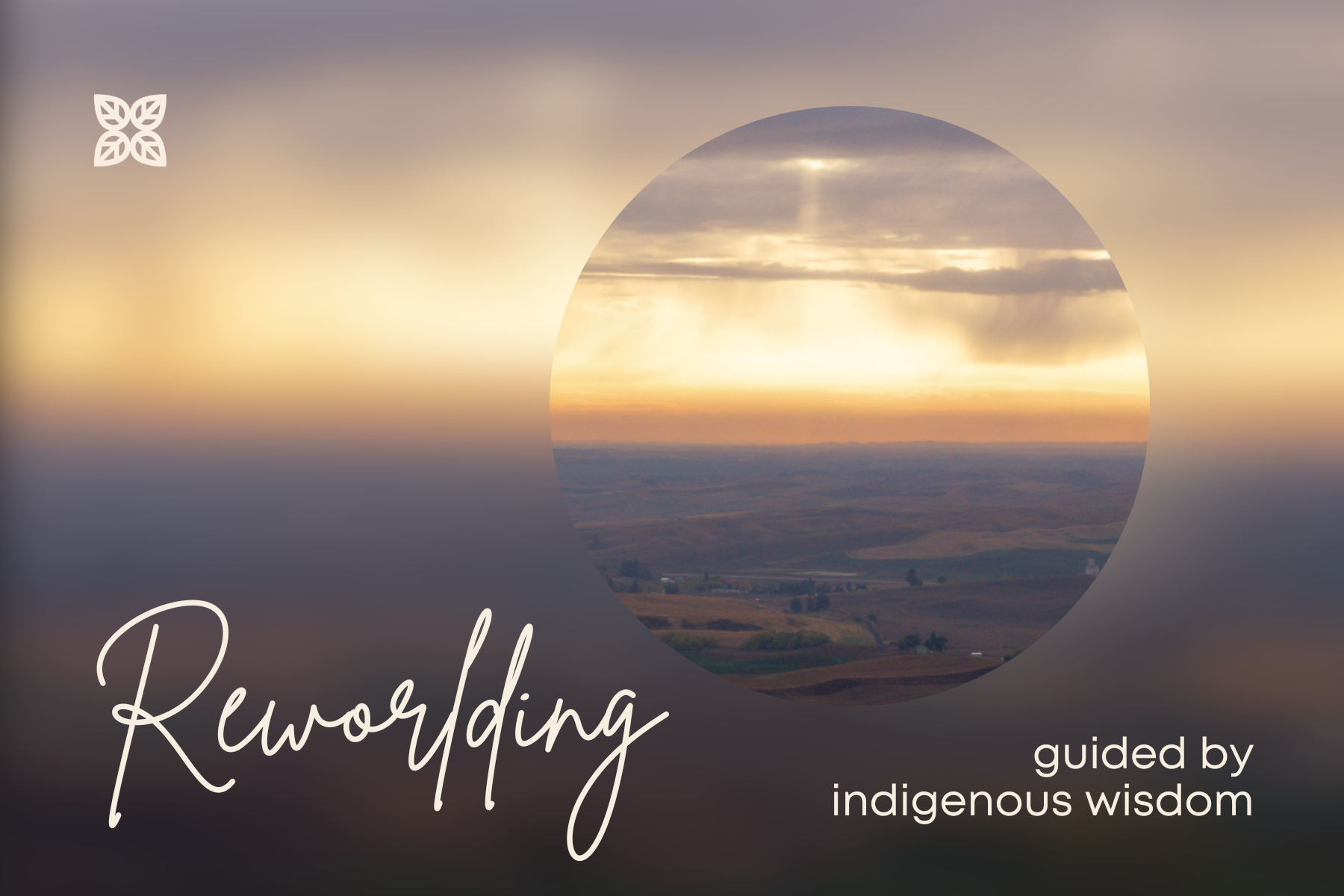On this strange “holiday” in the U.S. – one which simultaneously celebrates the Indigenous Peoples of Turtle Island and the man who began centuries of genocide against them – we encourage you to think and feel through the questions of what settlers owe to indigenous peoples and to explore the stories and experiences of indigineity that are your own or that you may have internalized.
Perhaps you’ve heard that Indigenous peoples protect nearly 80% of the remaining, cherished biodiversity on the planet. Perhaps you struggle to reconcile this tremendous contribution to the global community of life with staggering statistics about suicide rates among indigenous peoples. Perhaps you recognize with twinges of discomfort, that many of the places you love and tend are, in fact, “stolen land.” Perhaps you’ve heard the quip that we were all indigenous to some place at some point and wondered where and who you might have been absent colonization and coloniality.
EcoGather is led by a group of people who were ancestrally displaced from their cultures and places of origin. Our core team members are descended from immigrants to Turtle Island – some settlers by choice, most seekers of refuge from various forms of violent enclosure, oppression, and displacement throughout Europe. Some of us know more about our origins and ancestry than others. We feel viscerally, in our own ways, the harms of having been displaced, of having displaced others, and of having had our minds, relationships, values and aspirations colonized. We use this pain as a way to enliven and activate our solidarity with the indigenous peoples of the lands we live on — lands we must learn to be in reciprocal relationship with. We see ourselves as part of what Tyson Yunkaporta (a self-described free-ranging Aboriginal scholar and founder of the Indigenous Knowledge Systems Lab at Deakin University) calls “a global diaspora of refugees severed not only from land, but from the sheer genius that comes from belonging in symbiotic relation to” it. Much of the work of EcoGather can be described as an effort to repair rifts, restore belonging, and reawaken that genius because we know that it is essential to surviving and perhaps thriving for generations to come.
Most indigenous peoples alive today are survivors of collapse. They are holders wisdom drawn from deep, reciprocal relationship with the more-than-human world, lived experiences of resilience, and ancestral memories of surviving extermination attempts. We have so much to learn from them and so much to gain by amplifying and shifting power toward their leadership. Lately, we’ve been especially influenced by the following works:
- Braiding Sweetgrass: Indigenous Wisdom, Scientific Knowledge, and the Teachings of Plants, Robin Wall Kimmerer
- Sand Talk: How Indigenous Thinking Can Save the World, Tyson Yunkaporta
- Hospicing Modernity: Facing Humanity’s Wrongs and the Implications for Social Activism, Vanessa Andreotti (née Machado de Oliveira)
- As We Have Always Done: Indigenous Freedom Through Radical Resistance, Leanne Betasamosake Simpson
Join us in taking some time this month to delve deeper into indigenous ways of knowing and seeking belonging. Try to:
-
metabolize the lies of modernity and embrace radical tenderness (Andreotti)
-
perceive and be the custodians of the patterns of creation (Yunkaporta);
-
become “naturalized to place” (Kimmerer); and
-
participate in everyday acts of resurgence that form “constellations of collective action” (Simpson).
Get curious about indigenous knowledges, their plurality and common threads. Learn more about the original inhabitants of places dear to you. Open yourself to the ancient and abiding patterns, cycles, and relationships all around you.
Sincerely,

Nicole Civita
EcoGather Network Weaver & Creative Collaboration Director

